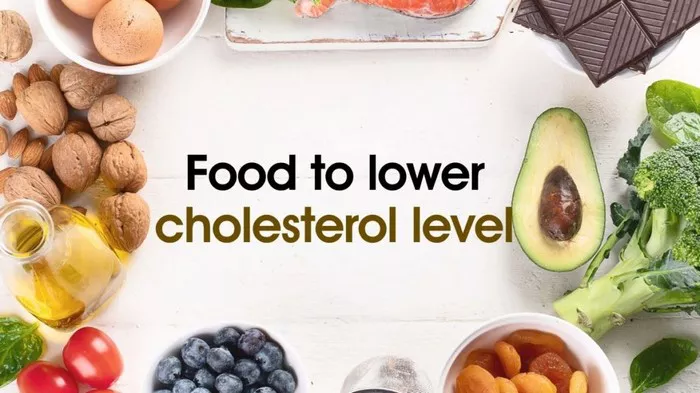Cholesterol management is a critical aspect of maintaining cardiovascular health. High levels of cholesterol can lead to atherosclerosis, a condition characterized by the buildup of plaque in the arteries, increasing the risk of heart disease and stroke. While medication can be effective in lowering cholesterol levels, dietary changes play a crucial role in managing this condition. Incorporating specific foods into your diet can help lower cholesterol naturally and promote overall heart health. In this article, we explore three of the best foods for lowering cholesterol and how they can be included in a balanced diet.
1. Oats: A Heart-Healthy Breakfast Staple
Oats are a nutritional powerhouse renowned for their ability to lower cholesterol levels. They are rich in soluble fiber, a type of fiber that binds to cholesterol in the digestive tract, preventing it from being absorbed into the bloodstream. This mechanism helps reduce levels of low-density lipoprotein (LDL) cholesterol, often referred to as “bad” cholesterol, without affecting high-density lipoprotein (HDL) cholesterol, the “good” cholesterol.
How to Incorporate Oats into Your Diet:
- Oatmeal: Start your day with a warm bowl of oatmeal topped with fresh fruits, nuts, or seeds for added flavor and nutrients. Opt for plain oats rather than pre-packaged varieties, which may contain added sugars and artificial ingredients.
- Homemade Granola: Prepare homemade granola using rolled oats, nuts, seeds, and a touch of honey or maple syrup for sweetness. Enjoy it as a cereal with milk or yogurt, or sprinkle it over Greek yogurt for a nutritious snack.
- Oat-Based Smoothies: Blend oats into smoothies along with your favorite fruits, leafy greens, and a source of protein such as Greek yogurt or protein powder. This adds a creamy texture and boosts the fiber content of your smoothie, making it a satisfying and cholesterol-lowering option.
2. Fatty Fish: Omega-3-Rich Champions
Fatty fish, such as salmon, mackerel, trout, and sardines, are prized for their high content of omega-3 fatty acids. These essential fats play a vital role in reducing inflammation, lowering triglyceride levels, and promoting heart health. Additionally, omega-3 fatty acids have been shown to increase HDL cholesterol levels while lowering LDL cholesterol, making them an excellent choice for individuals looking to improve their lipid profile.
How to Incorporate Fatty Fish into Your Diet:
- Grilled or Baked Salmon: Marinate salmon fillets in a mixture of olive oil, lemon juice, garlic, and herbs before grilling or baking them until tender and flaky. Serve with steamed vegetables and quinoa for a heart-healthy meal rich in omega-3 fatty acids.
- Tuna Salad: Make a nutritious tuna salad by mixing canned tuna with Greek yogurt, diced celery, red onion, and a squeeze of lemon juice. Enjoy it on whole-grain bread or lettuce wraps for a satisfying lunch packed with protein and omega-3s.
- Sardine Toast: Mash canned sardines with avocado, lemon juice, and a pinch of salt, then spread the mixture onto whole-grain toast for a quick and flavorful snack. Top with sliced tomatoes and fresh herbs for added taste and nutrients.
3. Nuts: Nature’s Nutrient-Dense Snack
Nuts are nutrient-dense powerhouses loaded with heart-healthy fats, protein, fiber, vitamins, and minerals. They contain unsaturated fats, including monounsaturated and polyunsaturated fats, which have been shown to improve cholesterol levels when consumed as part of a balanced diet. Additionally, nuts are rich in plant sterols, compounds that block the absorption of cholesterol in the intestines, further contributing to their cholesterol-lowering effects.
How to Incorporate Nuts into Your Diet:
- Mixed Nut Trail Mix: Create your own trail mix by combining almonds, walnuts, cashews, and dried fruits such as raisins or cranberries. Portion out individual servings for a convenient on-the-go snack that provides sustained energy and helps lower cholesterol levels.
- Nut Butter Spread: Spread almond butter or peanut butter onto whole-grain toast, apple slices, or celery sticks for a satisfying and nutritious snack. Look for natural nut butter varieties without added sugars or hydrogenated oils for the healthiest option.
- Nutty Salad Toppers: Sprinkle chopped nuts, such as pecans or pistachios, onto salads for added crunch, flavor, and heart-healthy fats. Pair them with leafy greens, vegetables, lean protein, and a drizzle of olive oil and balsamic vinegar for a balanced and cholesterol-lowering meal.
Conclusion
Lowering cholesterol levels is essential for reducing the risk of cardiovascular disease and promoting overall heart health. Incorporating specific foods into your diet, such as oats, fatty fish, and nuts, can help improve your lipid profile and support optimal cardiovascular function. By making these nutritious choices a regular part of your eating pattern, you can take proactive steps towards managing cholesterol levels naturally and enjoying a heart-healthy lifestyle for years to come. Remember to consult with a healthcare professional or registered dietitian before making any significant changes to your diet, especially if you have existing health conditions or concerns related to cholesterol management.


